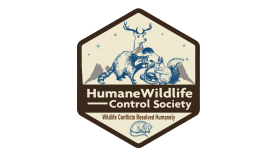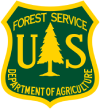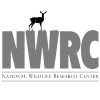Humane Wildlife Control in Raleigh, NC
The Humane Wildlife Control Society recommends non-invasive solutions to resolve human-wildlife conflicts. This includes:
Determining if the issue needs to be addressed at all
Opting for preventative measures first
Opting for wildlife exclusion as opposed to trapping
If trapping is the only way to solve the problem do so humanely
The Humane Wildlife Control Society screens candidates prior to recommendation. Our process requires any company we recommend to meet the following criteria:
Is properly licensed in North Carolina for wildlife control
Carries appropriate business licenses and insurance
Complies with all North Carolina laws and regulations for wildlife control
Adheres to the humane principles listed above.
In Raleigh, North Carolina we recommend Humane Wildlife Removal Raleigh for professional wildlife control services. This is a private company that charges for their services.
Contact Information:
Wildlife Removal Raleigh
919-825-2060
If you have any wildlife issues that can be handled by the state government agency for free, the North Carolina Wildlife Commission can help.
State Contact Information: 919-707-0010
The State Department of Agriculture may also be able to address your wildlife problem for no charge.
USDA Contact Information: (919) 707-3000
Legal and Humane Wildlife Removal in Raleigh, North Carolina Introduction Legal Framework for Wildlife Removal North Carolina Wildlife Resources Commission (NCWRC), which oversees the handling, trapping, and relocation of wildlife. Federal laws, including the Migratory Bird Treaty Act and the Endangered Species Act, which protect certain species from harm or displacement. City of Raleigh ordinances, which regulate property maintenance and nuisance animal management. Residents and businesses must adhere to these laws to avoid penalties and ensure humane treatment of animals. Humane Wildlife Removal Best Practices Preventative Measures Property Maintenance: Seal entry points in attics, basements, and crawl spaces to prevent animal intrusion. Waste Management: Secure trash bins with wildlife-resistant lids to deter scavengers. Landscaping Strategies: Trim overhanging branches and remove brush piles to minimize shelter opportunities for wildlife. Non-Lethal Deterrents Exclusion Devices: Install one-way doors for raccoons, squirrels, and other small mammals to exit safely without reentry. Repellents: Use scent-based deterrents like ammonia or vinegar-soaked rags near nesting areas. Noise and Light Tactics: Motion-activated lights and ultrasonic devices can discourage wildlife from settling near homes. Ethical and Legal Wildlife Removal Procedures Live Trapping Regulations: Traps must comply with NCWRC guidelines, and captured animals must be released on-site or relocated only with proper authorization. Professional Assistance: Wildlife removal services must be licensed by NCWRC to ensure humane and lawful handling. Relocation Restrictions: Many species cannot be relocated without state approval to prevent ecological imbalances and spread of disease. Handling Specific Nuisance Wildlife Raccoons & Opossums: Use exclusion methods instead of trapping; avoid feeding them. Squirrels: Seal attic entry points after ensuring no young are present. Bats: Conduct exclusion outside of maternity season (May–August); install bat houses as alternative roosting sites. Snakes: Non-venomous species should be left alone; venomous snakes require professional removal. Coyotes & Foxes: Secure small pets and livestock; use hazing techniques like loud noises to deter them. Dealing with Injured or Orphaned Wildlife Do Not Attempt to Raise Wild Animals: It is illegal and often harmful to the animal. Observe Before Intervening: Many young animals are not abandoned but left temporarily by their parents. Contact Licensed Wildlife Rehabilitators for proper care and handling. Who to Call for Assistance North Carolina Wildlife Resources Commission (NCWRC): (919) 707-4011 Raleigh Animal Control: (919) 831-6311
Raleigh, North Carolina, is home to a diverse array of wildlife species that contribute to the region’s natural balance. However, when animals enter residential or commercial areas, they can create conflicts that require intervention. This guide outlines legal and humane approaches to wildlife removal in Raleigh, ensuring compliance with state and federal regulations while prioritizing ethical treatment of animals.
Wildlife removal in Raleigh is regulated by:







